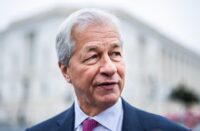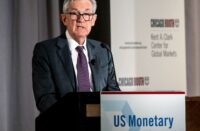In a recent online meeting with Nissan Motor executives, CEO Makoto Uchida delivered a chilling update: the business situation was graver than anticipated, necessitating job and production cuts. This news, disclosed by three insiders, came about due to sluggish sales and profitability in North America and China.
During the Q&A session, Uchida found himself facing a barrage of questions from several hundred managers, who were concerned about the company’s decline. Five years ago, Nissan had the world’s top electric vehicle (EV) model by lifetime sales. The managers queried why Nissan hadn’t launched gasoline-electric hybrids in the U.S., where demand is high, and why it hadn’t diversified its EV strategy by making hybrids available in the U.S., its largest market, as it had done in Japan.
Uchida, 58, is now under pressure to turnaround the company’s fortunes while trying to secure his position. Following poor results announced last month, the former China head committed to cutting 9,000 employees, reducing global production capacity by 20%, and slashing costs by $2.6 billion. He also pledged to halve his salary.
The incoming U.S. president, Donald Trump, has promised to impose a 25% tariff on Mexico, which serves as a crucial, low-cost production hub for Nissan and other companies. This could potentially force Nissan to reduce its production in Mexico, adding to Uchida’s woes.
Amidst this turmoil, Uchida is also grappling with a significant shift in the automotive industry, where new EV manufacturers are challenging traditional automakers. Companies like Volkswagen and Stellantis, led by CEO Carlos Tavares, are feeling the heat. Uchida is betting big on an EV future, but with post-pandemic spending slowing down, Nissan’s lack of hybrid models in the U.S. is becoming a glaring issue.
Tokai Tokyo Intelligence Laboratory’s senior analyst, Seiji Sugiura, attributes Nissan’s current situation to a failure in management strategy, calling it a “man-made disaster”. He suggests that it’s time for Uchida to pass the baton to a new management team.
Nissan’s journey in the past five years has been marred by the arrest of its former chairman, Carlos Ghosn, on charges of financial misconduct, and subsequent leadership changes. Amidst these challenges, the company has failed to keep up with market leaders like Tesla and China’s BYD in the EV space.
The company’s erstwhile strategy of focusing entirely on EVs in the U.S., without considering the demand for hybrids, proved to be a misstep. Despite realizing the increasing demand for hybrids, Nissan didn’t believe the trend would persist long enough to warrant a strategy change.
Uchida and his team are now focusing on executing a recovery plan, which includes job cuts and production adjustments. The next few months will be critical for Nissan’s future, with activist investors quietly amassing stakes in the company.
Despite the challenges, Uchida remains committed to his role as CEO, expressing his determination to “fulfill my duty”. However, with the business environment and market trends evolving rapidly, Nissan will need to reassess and adapt its strategies to stay afloat in the competitive automotive industry.




